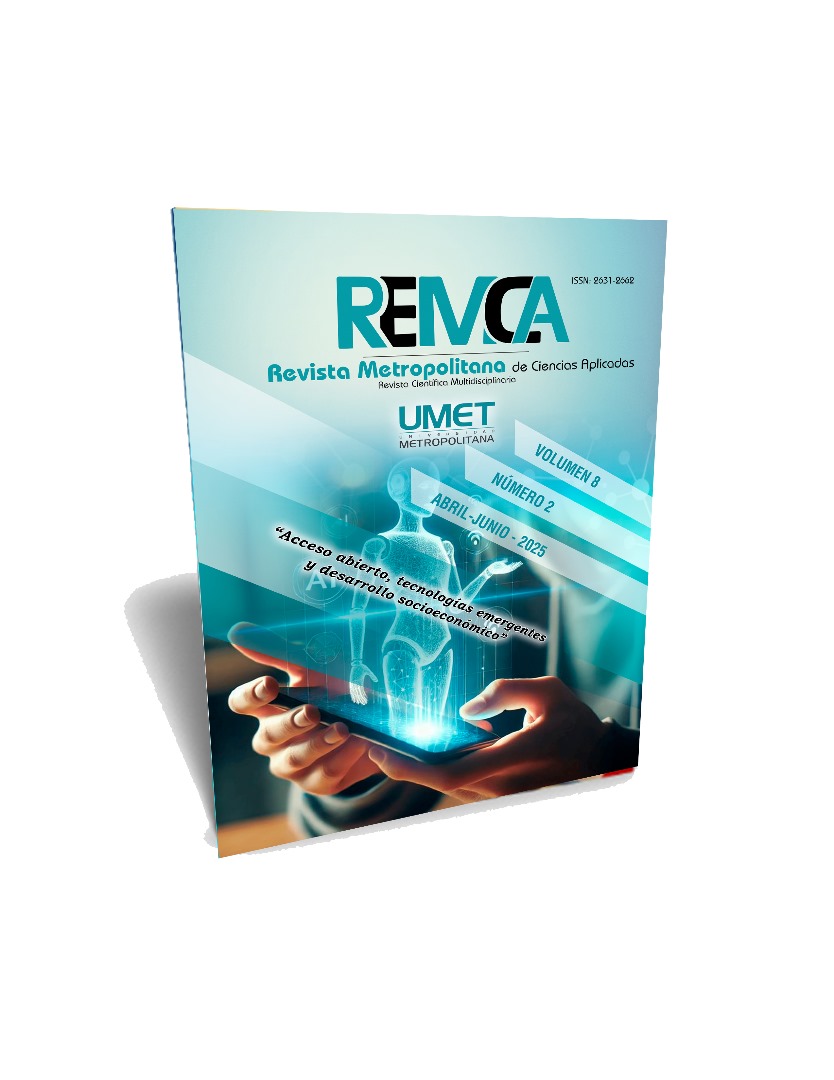Aplicación de la inteligencia artificial en la administración de empresas: Desafíos y oportunidades
DOI:
https://doi.org/10.62452/57rdaf30Keywords:
Artificial Intelligence, business management, automation, predictive analytics, digital transformationAbstract
Artificial Intelligence (AI) is revolutionizing business administration by enabling process optimization, task automation and improved strategic decision making. Its implementation in different business domains has demonstrated significant benefits in terms of operational efficiency and competitiveness. This article examines how AI is transforming business management, highlighting its applications in automation, predictive analytics and customer service personalization. It also explores the challenges companies face in adopting these technologies, including resistance to change, implementation costs, and ethical implications. Finally, key strategies and recommendations for effective integration of AI into business management are presented.
Downloads
References
Accenture. (2021). The future of AI in customer experience. Accenture Insights.
Brynjolfsson, E., & McAfee, A. (2017). Machine, platform, crowd: Harnessing our digital future. Norton & Company.
Bughin, J., Hazan, E., Ramaswamy, S., Allas, T., Dahlstrom, P., Henke, N., & Trench, M. (2017). Artificial Intelligence: The Next Digital Frontier? McKinsey Global Institute.
Chui, M., Manyika, J., & Miremadi, M. (2021). The state of AI in business applications. McKinsey Global Institute.
Davenport, T., & Ronanki, R. (2018). Artificial intelligence for the real world. Harvard Business Review, 96(1), 108-116. https://www.bizjournals.com/boston/news/2018/01/09/hbr-artificial-intelligence-for-the-real-world.html
Floridi, L., & Cowls, J. (2019). A unified framework of five principles for AI in society. Harvard Data Science Review, 1(1). https://hdsr.mitpress.mit.edu/pub/l0jsh9d1/release/8
Jobin, A., Ienca, M., & Vayena, E. (2019). The global landscape of AI ethics guidelines. Nature Machine Intelligence, 1(9), 389-399. https://www.nature.com/articles/s42256-019-0088-2
Lemon, K. N., & Verhoef, P. C. (2016). Understanding customer experience throughout the customer journey. Journal of Marketing, 80(6), 69-96. https://journals.sagepub.com/doi/10.1509/jm.15.0420
McKinsey & Company. (2022). The impact of automation on administrative processes. McKinsey Insights.
Russell, S., & Norvig, P. (2021). Artificial intelligence: A modern approach. Pearson.
Sharda, R., Delen, D., & Turban, E. (2020). Analytics, data science, & artificial intelligence: Systems for decision support. Pearson.
Downloads
Published
Issue
Section
License
Copyright (c) 2025 Byron Oviedo-Bayas, Cristian Zambrano-Vega, Leyda Zavala-Arteaga, Mireya Stefania Zúñiga-Delgado (Autor/a)

This work is licensed under a Creative Commons Attribution-NonCommercial-ShareAlike 4.0 International License.
Authors who publish in Revista Metropolitana de Ciencias Aplicadas (REMCA), agree to the following terms:
1. Copyright
Authors retain unrestricted copyright to their work. Authors grant the journal the right of first publication. To this end, they assign the journal non-exclusive exploitation rights (reproduction, distribution, public communication, and transformation). Authors may enter into additional agreements for the non-exclusive distribution of the version of the work published in the journal, provided that acknowledgment of its initial publication in this journal is given.
© The authors.
2. License
The articles are published in the journal under the Creative Commons Attribution-NonCommercial-ShareAlike 4.0 International License (CC BY-NC-SA 4.0). The terms can be found at: https://creativecommons.org/licenses/by-nc-sa/4.0/deed.en
This license allows:
- Sharing: Copying and redistributing the material in any medium or format.
- Adapting: Remixing, transforming, and building upon the material.
Under the following terms:
- Attribution: You must give appropriate credit, provide a link to the license, and indicate if any changes were made. You may do this in any reasonable manner, but not in any way that suggests the licensor endorses or sponsors your use.
- NonCommercial: You may not use the material for commercial purposes.
- ShareAlike: If you remix, transform, or build upon the material, you must distribute your creation under the same license as the original work.
There are no additional restrictions. You may not apply legal terms or technological measures that legally restrict others from doing anything the license permits.




